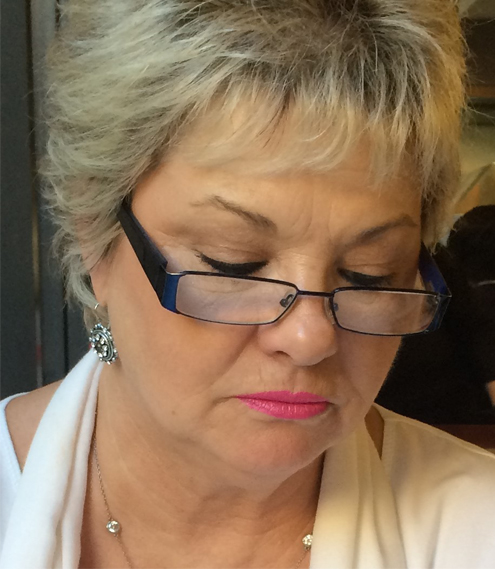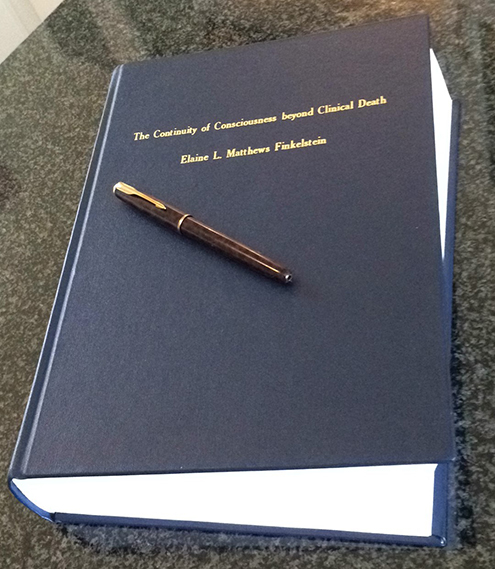In the 1990s, Elaine commenced informal research into exceptional or non-ordinary psychological experiences. Over time this research increasingly focused on the non-ordinary transformative experiences of those nearing the end of life, on near-death and transient-death experiences, on signs and messages received by the living from deceased loved ones, and on the apparent memories of a past life and death.
Experiences of this nature raise fundamental questions around the dominant materialistic view of consciousness, which motivated Elaine to enrol in a PhD programme to take this research, and the questions that is raises, further. This programme required the submission of a number of papers as well as a dissertation. Her Doctoral dissertation was entitled, The Continuity of Consciousness beyond Clinical Death, and was submitted in early 2012.
This work encompasses 450 pages of experiential evidence and discussion supporting the view that the current materialistic paradigm, one that assumes that the brain creates consciousness, is inadequate. In her dissertation she examines the impact of quantum physics or modern science as a potential catalyst for the expansion of scientific thinking, an expansion embracing consciousness as a phenomenon that is significantly more than a by-product of brain processes. Elaine’s dissertation supports the hypothesis that consciousness is primary, that human consciousness survives physical death in some form, and suggests a different approach to the understanding of consciousness and reality.
While Elaine was conducting the research for this dissertation the platform for the establishment of a research foundation was developing. Soon after successfully completing her PhD programme, Elaine founded the Transformative End-of-Life Experiences Research Foundation, or TELERF, as the vehicle for future research. Elaine now continues her research, and forms research collaborations, through the Foundation.


Below is the Abstract of Elaine’s PhD dissertation as well as information on the papers Elaine submitted during her studies.
Abstract:
There is increasing evidence to suggest that consciousness is far more than an emergent neurological phenomenon, and that consciousness continues during times of severe brain impairment and beyond clinical death.
A significant body of research strongly indicates that the current materialistic paradigm is inadequate in many respects, not least of which is the inability of this model to satisfactorily explain so-called paranormal anomalies. Such paranormal anomalies include the near-death experience and the associated out-of-body experience, spontaneous past-life recall in young children, and communication with the deceased.
This research critically examines the predominant reductionist approach to consciousness and highlights these inadequacies. The contribution of quantum mechanics to furthering the understanding of consciousness and the brain is explored, as is the premise that quantum physics allows for the continuity of consciousness, in some form, beyond physical death. A new framework for consciousness is proposed in which the role of the brain is illustrated as one of transmission, or the filtering of non-local consciousness. This top-down approach accommodates the anomalies that current neuroscientific models do not, and strongly suggests the primacy of consciousness. An exploration of these anomalies forms a major focus of this work, as they provide qualitative evidence for the eternal and non-brain-dependent nature of consciousness.
This research draws on the vast body of evidence provided by near-death experiences, past-life recall, and research into the functioning of consciousness within an invisible realm or different dimension. The evidence presented in this work strongly suggests the continuity of consciousness beyond clinical death.
Papers:
A total of 21 papers were submitted. The primary foci of these papers were:
- The power of human consciousness
- Conscious living and conscious dying
- Transformation of the inner self and spirit
- Past-life regression and regression therapy
- Techniques for mind-body health and healing
- Stress management
- Clinical hypnosis and therapeutic trances
- Transpersonal-centred therapy

